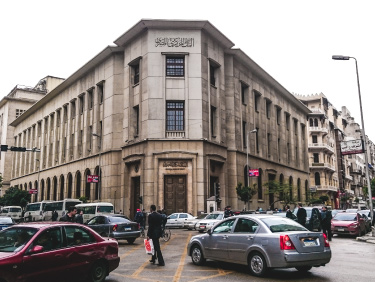Given the global context of monetary easing, HC expect the CBE to cut rates by 50 bps in its upcoming meeting.
Monette Doss, Economist and banking analyst at HC commented that the monthly headline inflation declined in November driven by prices of food and beverage which has been decreasing by 1.51%, 1.81%, and 1.75% for 3 consecutive months in November, October and September, respectively. This can be partially attributed to government efforts to cut the prices of basic food items offered on ration cards as well as efforts to avoid possible supply shocks.
The government has also announced that it is planning to review the price of commodities (such as oil, sugar, flour and rice) covered by the ration card system quarterly, based on the EGP/USD rate and the price of commodities in international markets. As international prices of these commodities seem stable compared to last year averages, and due to EGP appreciation, HC expects to see general price stability over the coming few months. Due to unfavorable base effect, however, they expect December annual inflation to increase to 7.3%, well below the CBE target of 9% (± 3%) for 4Q20, providing room for the CBE to proceed with monetary easing to stimulate economic growth and stock market activity, Doss added.
Monette Doss added that the Foreign holding of Egyptian treasury bills declined to USD14.9bn in October from USD16.8bn in July, which happened concurrently with interest rate cuts in Egypt and emerging markets slow-down. Over the last week, however, the USA and China have announced reaching a phase-1 trade agreement which was followed by renewed inflows into emerging markets. Some USD1.15bn were added to US-listed emerging market exchange traded funds (ETFs) that invest across developing countries in the week ending December 13, up from USD142m in the previous week, according to data compiled by Bloomberg. Some USD490m were said to enter the Egyptian debt market on 16 December following the enhanced global economic scene, according to Egyptian banking sources, leading to EGP appreciation to EGP16.03/USD currently, the highest rate since April 2017.
She expects increased inflows into the Egyptian debt market over the coming few months as it continues to offer high positive real interest rate compared to other emerging markets such as Turkey. HC estimates Egypt’s real interest rate at 4.72% (using the latest 12-month T-bill rate of 14.89%, HC’s estimated 50bps rate cut, HC’s average 2020e inflation forecast of 7.52% and a 15% tax on Egyptian treasury holdings by US and European investors) compared to Turkey’s real interest rate of 0.38% (using the latest 12-month T-bill rate of 12.18%, Bloomberg 2020e inflation consensus estimate of 11.8% and factoring in that Turkish treasury holdings are tax-free), which suggests a positive interest rate differential of 4.34% in favor of Egypt. The two countries have similar risk profile as implied by Egypt’s 5-year CDS of 292.1, and Turkey’s 5-year CDS of 287.5.
It is worth mentioning that at its last meeting on 14 November 2019, the Central Bank of Egypt’s (CBE) Monetary Policy Committee (MPC) reduced policy rates by 100 bps after undertaking rate cuts of 100bps and 150bps in September and August, respectively. Egypt’s annual headline inflation accelerated to 3.6% in November from 3.1% in the previous month, with monthly inflation decreasing 0.3% compared to an increase of 1.0% in October, according to data published by the CBE. Egypt’s annual core inflation also decelerated to 2.1% in November from 2.7% in the previous month, with the monthly core CPI decreasing 0.14% compared with an increase of 1.1% in October, CBE data showed.
This content is just for general information.

